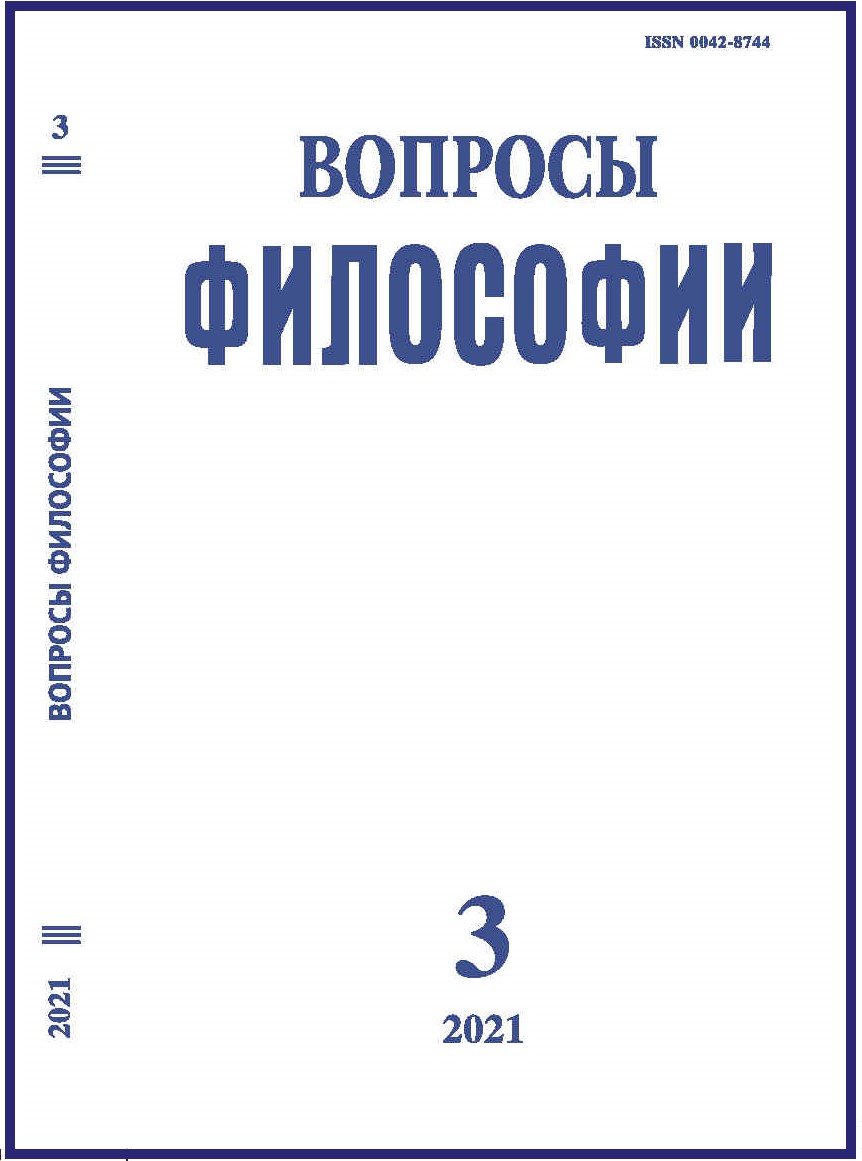The Theory of Social Relay by M.A. Rozov: Pathway for Understanding
DOI:
https://doi.org/10.21146/0042-8744-2021-3-146-160Keywords:
gnoseology, epistemology, philosophy of science, ontology, social relay, knowledge, reflection, reference, representationAbstract
The article analyzes the problems of modern epistemology in the context of presenting the views and philosophical heritage of the famous Russian philosopher Mikhail Alexandrovich Rozov. The relevance of the theory of social relay developed by him and the corresponding “wave” ontology, especially in the period of thematic, terminological and substantial transformations of modern epistemology, is shown. The author carry out the idea that without solving the ontological and methodological problems of the empirical analysis of scientific knowledge, it is impossible to correctly investigate knowledge. The article describes in detail the logic of Rozov’s reasoning, and also demonstrates the scale of M.A. Rozov on the reforming of epistemology and philosophy of science, on the formulation of an urgent agenda, problems, goals and objectives of the study of knowledge. The bottom line is that understanding semiotic objects (scientific knowledge) as phenomena of social memory, which are reproduced according to direct or indirect (verbalized) patterns, opens a new world of social relay races. The broad applicability of Rozov’s theory in various empirical contexts is demonstrated, which allows discussing both traditional and modern philosophical and methodological problems of the natural and socio-humanitarian sciences, as well as in epistemology and philosophy of science.

